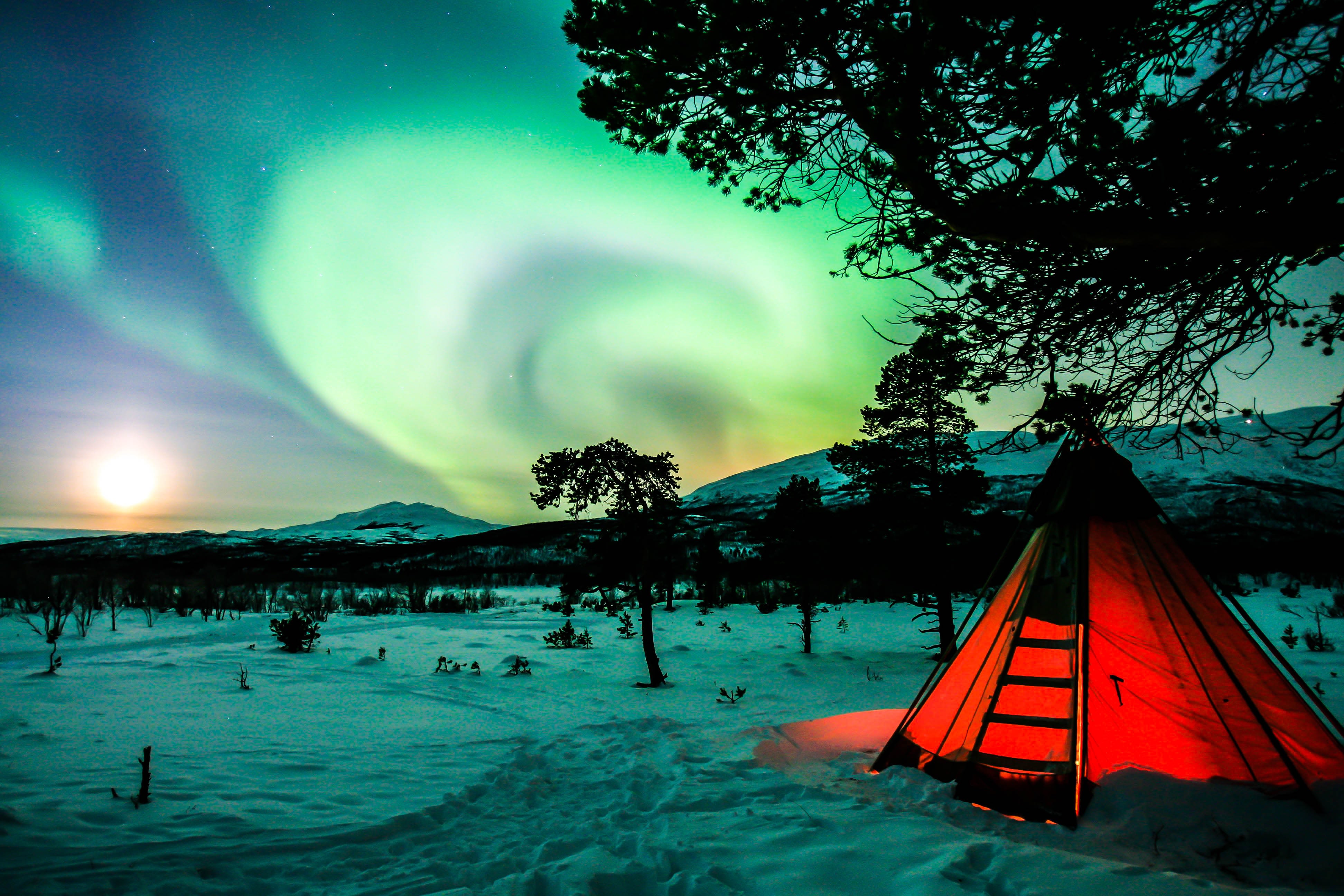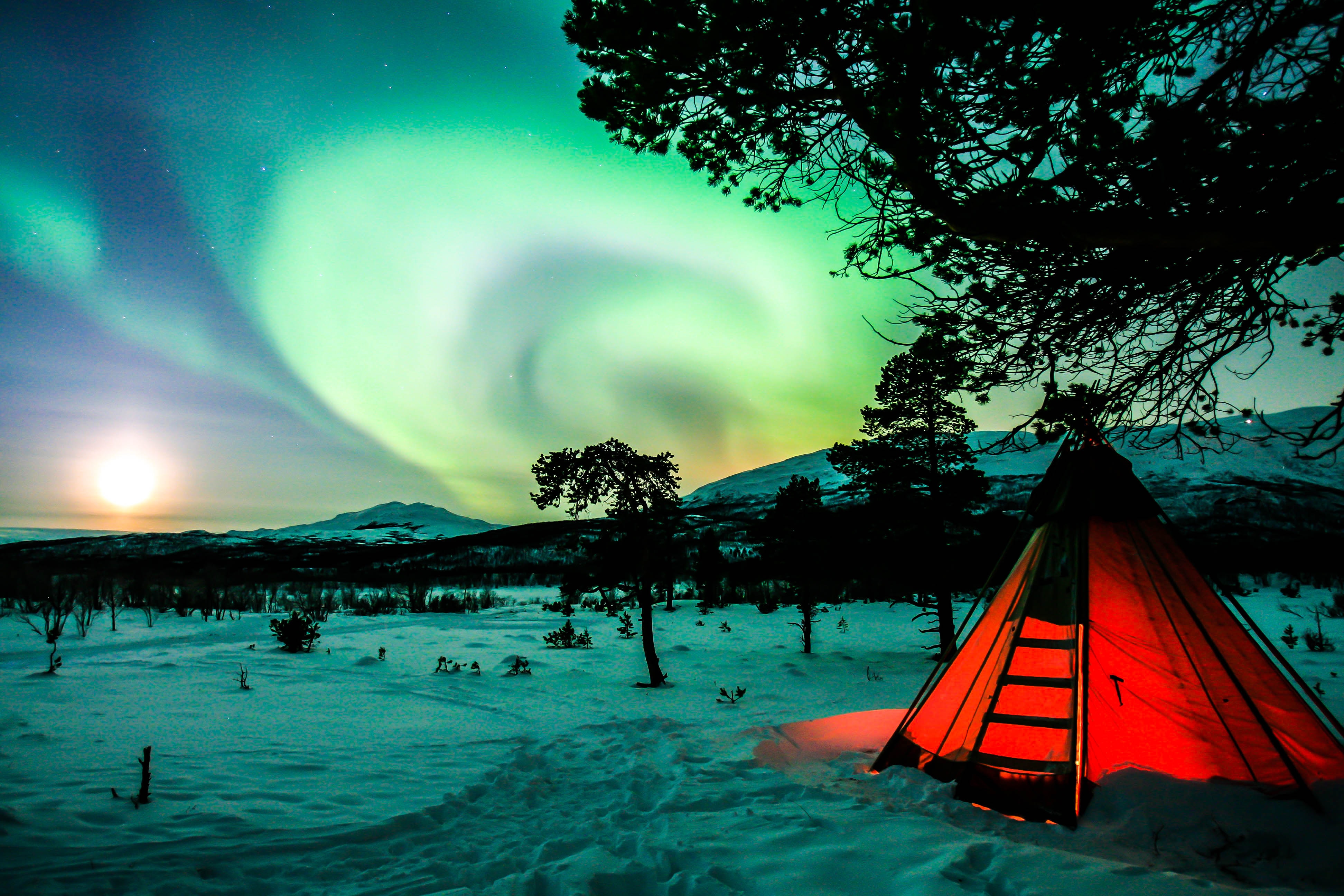Watching the aurora borealis, one of Mother Nature’s greatest wonders, is a bucket-list experience. Also known as the northern lights, it’s something that occurs when solar particles enter the Earth’s atmosphere and burn gases upon impact to produce various colors like green, red, purple, pink, yellow, blue, and orange. When you see the colorful lights dance across the night sky for the first time, it’s something you’ll never forget.
To witness this incredible phenomenon, multiple factors need to come together, including minimal light pollution, a dark sky, and geomagnetic activity. Being in the right geographic location is a must so you’ll want to plan a trip to one of the very best places for viewing the aurora, including the destinations listed here.
NOTE: When you’re packing, don’t forget your LARQ Bottle Filtered. While avoiding single-use plastics is always an important consideration due to the dangers to humans, animals, and our environment, the northern lights tend to appear in some of the most pristine places, so you don’t want to do anything that would harm them.
Finnish Lapland

One of the world’s best destinations for viewing the northern lights is Finnish Lapland as it lies almost entirely above the Arctic Circle which means it’s a familiar sight in the region’s dark skies. For one of the most unforgettable all-around experiences, consider booking one of the glass igloos at Kakslauttanen Arctic Resort. The thermal glass is designed to stay frost-free, which means you can enjoy a clear view of the light show from the warmth and comfort of your own private igloo. In the main hotel, you’ll also find an ice bar and snow chapel that’s rebuilt every winter, a restaurant, and the world’s largest smoke sauna.
Abisko National Park, Sweden

Located in Swedish Lapland, Abisko National Park is home to the Aurora Sky Station, which is 150 miles north of the Arctic Circle. The surrounding mountains and favorable prevailing winds combine to create some of the most cloud-free skies in the region, setting the scene for a brilliant show which is why it’s used as a research facility. But visitors are also invited to spend the night. Available between November and March, you’ll access it via a 20-minute chairlift ride. There is only a camp bed and no electricity but warm clothes are included and if the lights appear while you’re asleep, you’ll be woken up to enjoy them, making it worth roughing it a bit.
Tromso, Norway

Northern Norway is another top spot for some of the world’s best northern lights views. Tromso, often called the “Paris of the North” is one of the most easily accessible destinations for enjoying the show as it teems with aurora activity after the long days of summer have passed. If you want to do more than watch the lights you can combine an overnight stay in an Aurora Camp with a dog sledding tour the following day. You’ll enjoy a comfortable night’s sleep in a Lavvu tent (the traditional dwelling of the Sammi people) with high-quality camping gear and soft reindeer skins. All your meals, including dishes like Sammi reindeer stew, and hot drinks are included too.
Jokulsarlon Glacier Lagoon, Iceland
With its location near the Arctic Circle, Iceland is another one of the best countries to witness the aurora while also enjoying some of the world’s most breathtaking scenery. Far from light pollution, the Jokulsarlon Glacier Lagoon near the Vatnajokull Glacier, just off the Ring Road, is one of the top spots to see them on the island. While it’s possible to witness the phenomena between late August and mid-April, the best months for viewing here are late September through late March.
Jokulsarlon is a large glacial lagoon that was created by glacier melt and is continuing to grow rapidly as the polar ice cap melts. Icebergs break off the glacier constantly, drifting from the lagoon through a short river and into the sea. Seals can often be seen floating on them, while the waves eventually turn some back to a black sand beach where they’re strewn across like glittering diamonds. This is truly a magical place to be while the stunning lights dance across the sky.
Shetland Islands, Scotland
The Shetland archipelago lies only 400 miles south of the Arctic Circle, making it one of the best places to see the northern lights not only in the United Kingdom but the world. There’s lots of wide, open space throughout the islands with little light pollution which increases the odds of seeing what’s known locally as the “Mirrie Dancers.” Any remote spot can be a great place to spread out a blanket or set up some folding chairs and wait for the show.
The aurora can appear anytime when there are dark skies, but keep in mind that the nights are far too light in the summer. In fact, during midsummer, there’s no darkness at all with the sun dipping just below the northern horizon for a few hours before it rises again, bathing the land in a deep orange glow. Your best chance at watching the lights is from around mid-October through mid-March.
Churchill, Manitoba, Canada

Photo by Enlightening Images
Churchill is located just south of the Arctic Circle and nearly 3,500 miles south of the North Pole, but it’s in a very unique location in the sub-Arctic tundra directly beneath the Auroral Oval. Here, auroral activity occurs on more than 300 nights of the year, most frequently appearing from August to April. By joining a Northern Lights tour you can be picked up from your accommodation to photograph the lights when they come out in a prime location.
Of course, you’ll have the chance to enjoy another bucket-list experience with Churchill famous for its polar bears which are best seen during prime aurora time: October and November. That said, if you come in September, there’s a good chance you’ll get to see the thousands of beluga whales in the bay, polar bears, and the northern lights. Some fortunate visitors have even caught this “triple play” in late July and early August.
Whitehorse, Yukon Territory, Canada

Photo by Leonard Laub
The westernmost territory in Canada is home to the Northern Lights Space and Science Centre. Located in Watson Lake, it’s the country’s research base focused on the polar phenomenon as well as providing a place for visitors to learn more about the science behind it through interactive displays and panoramic video. It’s no surprise that this remote region is also the perfect base for northern lights hunting with minimal light pollution and lots of wide open space.
Just a 15-minute drive from downtown Whitehorse, the territorial capital, Miles Canyon has viewpoints that overlook the canyon with prime viewing spots. A short trek up Gray Mountain will bring you to an old secluded lookout tower where you’ll have a 360-degree view of the valleys, providing another perfect location. The aurora is often visible in the night sky here from late August through early April, with the longer hours of darkness bringing more opportunities to catch the magic.
Fairbanks, Alaska

There are many places in Alaska for aurora views, but the best and most easily accessible is outside of Fairbanks which is about 180 miles south of the Arctic Circle at 64° N. The farther you are from the city lights the better, such as Cleary Summit, but you’ll need a four-wheel drive. Even better is to head to the Chena Lake Recreation Area about 20 miles away. Just northeast is Chena Hot Springs Resort which offers a great base for watching the colorful lights that frequently appear in the dark night skies. Natural hot springs pools are right on-site where you might be able to watch while enjoying a soothing soak. The resort will send an alert out when the lights appear to ensure you don’t miss them if you’re sleeping. It also offers snow coach tours that head to a higher elevation for an even better look at the incredible phenomenon.
The resort offers many other activities, such as ice skating, dog sledding tours, and sleigh rides as well as hosting a renowned Aurora Ice Museum.
